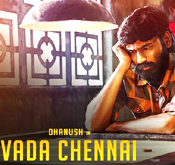



In contrast to the low social status of Vrushali, in the Tamil rendition of Karna’s life, Ponnaruvi is said to be of royal descent, a Kalinga princess. Ponnaruvi’s name does not figure in the critical edition which talks instead of Vrushali (the daughter of Duryodhana’s charioteer) as Karna’s wife. This is especially true of the women protagonists within the epic like Draupadi, Gandhari and Karna’s wife, Ponnaruvi. Regional variations of the Mahabharatas, on the other hand, are much more fluid in their portrayal of the epic characters. Personalities like Duryodhana and Karna, represented in negative terms as ‘evil’ forces, find a more nuanced and less biased space within the regional versions. Cover of ‘Alli Arasani’ by Professor Vijaya Ramaswamy These tend to freeze women within certain descriptive and prescriptive frames contained within the Sanskrit-Brahmanical and patriarchal register. The critical editions of the Mahabharatas are authored by men, Brahmanical in outlook, if not in fact, and located squarely within the patriarchal register, or framework. The event was scheduled to be held at the C P Ramaswami Aiyar Institute of Indological Research, Chennai, on January 4, 2020. Professor Vijaya Ramaswamy (Picture from Chennai Event)įrom the Wire, New Delhi: This is a condensed version of a lecture by Professor Vijaya Ramaswamy, titled ‘Reluctant Brides, Deviant Wives and Cunning Witches: Women in Tamil Mahabharatas,’ focusing on Draupadi, Alli and Aravalli-Suravall.


 0 kommentar(er)
0 kommentar(er)
